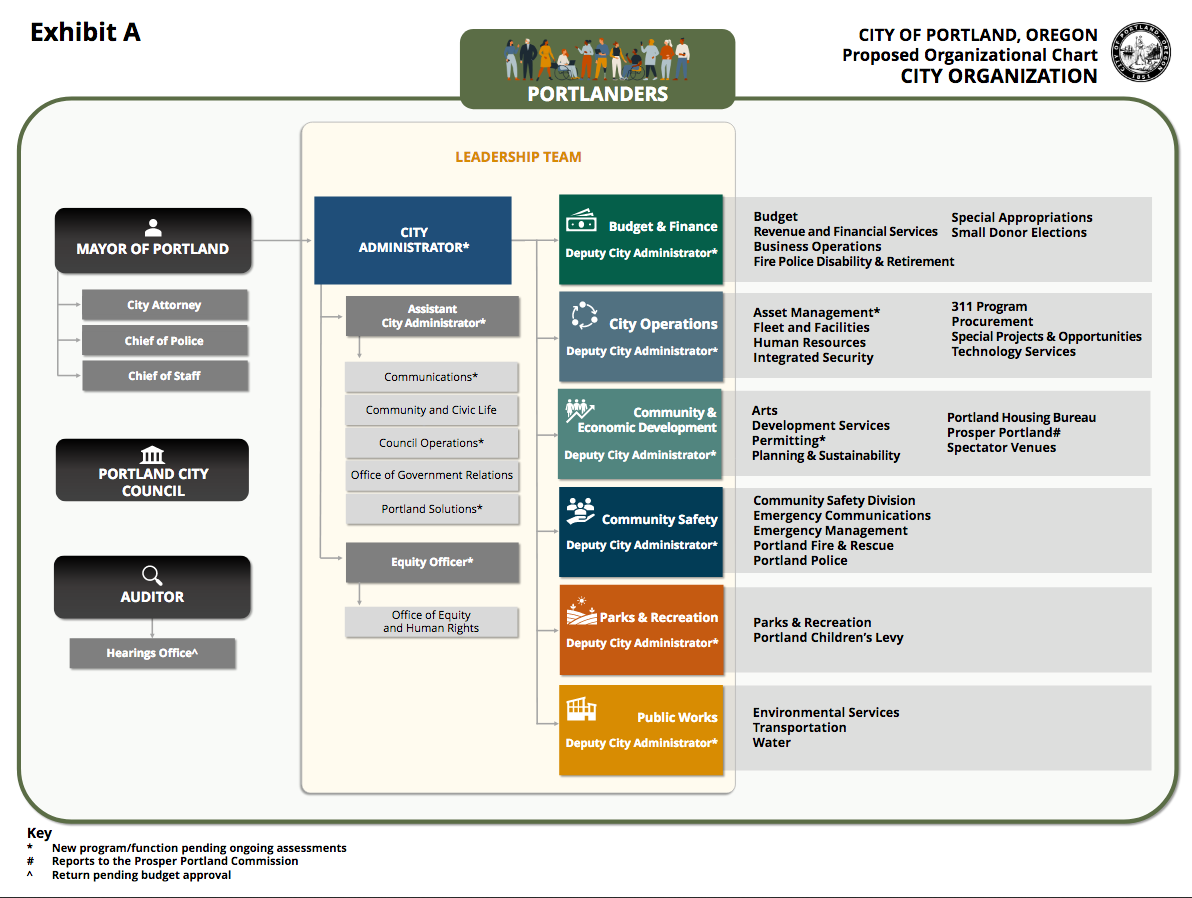
Two upcoming votes — about the City of Portland’s future org chart and a slew of amendments that roll back certain housing regulations — will have broad impacts on Portland development and governance. Here’s the lowdown:
Probably no bureau has been more battered by the inefficiencies of Portland’s antiquated commissioner form of government than the Bureau of Development Services (BDS). The bureau is charged with coordinating the review of building permits across several other permitting bureaus: Environmental Services, Transportation, Water, Forestry, Fire.
City audits going as far back as the 1980s have repeatedly pointed out that BDS is responsible for herding cats across multiple bureaus and commissioners—without having authority over any of them. This disorganization has led to developers complaining for years about delayed applications, inconsistency, unresponsive service and lack of accountability. By 2021, city auditors were blunt about the situation:
The commission form of government and fragmented permitting authority across seven bureaus has resulted in no one entity empowered to resolve these long-standing Citywide problems. This is exacerbated by leadership turnover – both with bureau directors and Commissioner assignments – that results in changed priorities, focus areas, and funding decisions. As a result, each bureau director and their Commissioner-in-charge remains focused on their own bureau and not on the City permitting process as a whole.
It’s been a long time coming, but the development review process — and Portland — may finally be getting the reorganization they need thanks to charter reform. Last week, The City of Portland Charter Transition Team released their final draft proposal for the City’s organizational structure, and this morning the City Council is holding a Charter Transition Work Session to go through it.
Tomorrow, November 1st, Council votes on the reorganization of city bureaucracy.
Here’s my question: Given that the development review process has underperformed for 40 years because of Portland’s commission form of government, how much are local building regulations responsible for our housing supply crisis?
I ask because another vote happening soon is the November 14 Planning Commission’s vote to forward Housing Regulatory Relief amendments to the City Council for a December decision about eliminating or temporarily suspending 16 different building regulations, including rules about bike parking. This is being done in an effort close the big gap between the current rate of housing production and the city’s projected needs.
But consider the possibility that the charter reform changes to city government, specifically how they will affect BDS, might more successfully increase housing production than the regulatory rollbacks being contemplated.
I’ve read many of the city reports on these issues. I’m not close to being an expert, but I’m reasonably informed. I still haven’t been convinced, however, that regulation is a big driver of our housing shortage, or that lessening the regulations will result in more shelter being built.
Depending on the outcomes, Portland might be closer to walking back some of its most innovative building regulations, even though its new governance structure might provide a stronger solution to building more housing.
Correction: The post initially reported that the Planning Commission vote on the Housing Regulatory Relief was on November 1st. That is incorrect. The vote will be held on November 14. We apologize for the confusion.
Update, October 31: The Planning Commission has scheduled a 2nd session on Housing Regulatory Relief for November 7th, “to more thoughtfully and deliberately consider the proposals and public feedback.” The work session will be held virtually and broadcast live (and available after the meeting) via YouTube.


